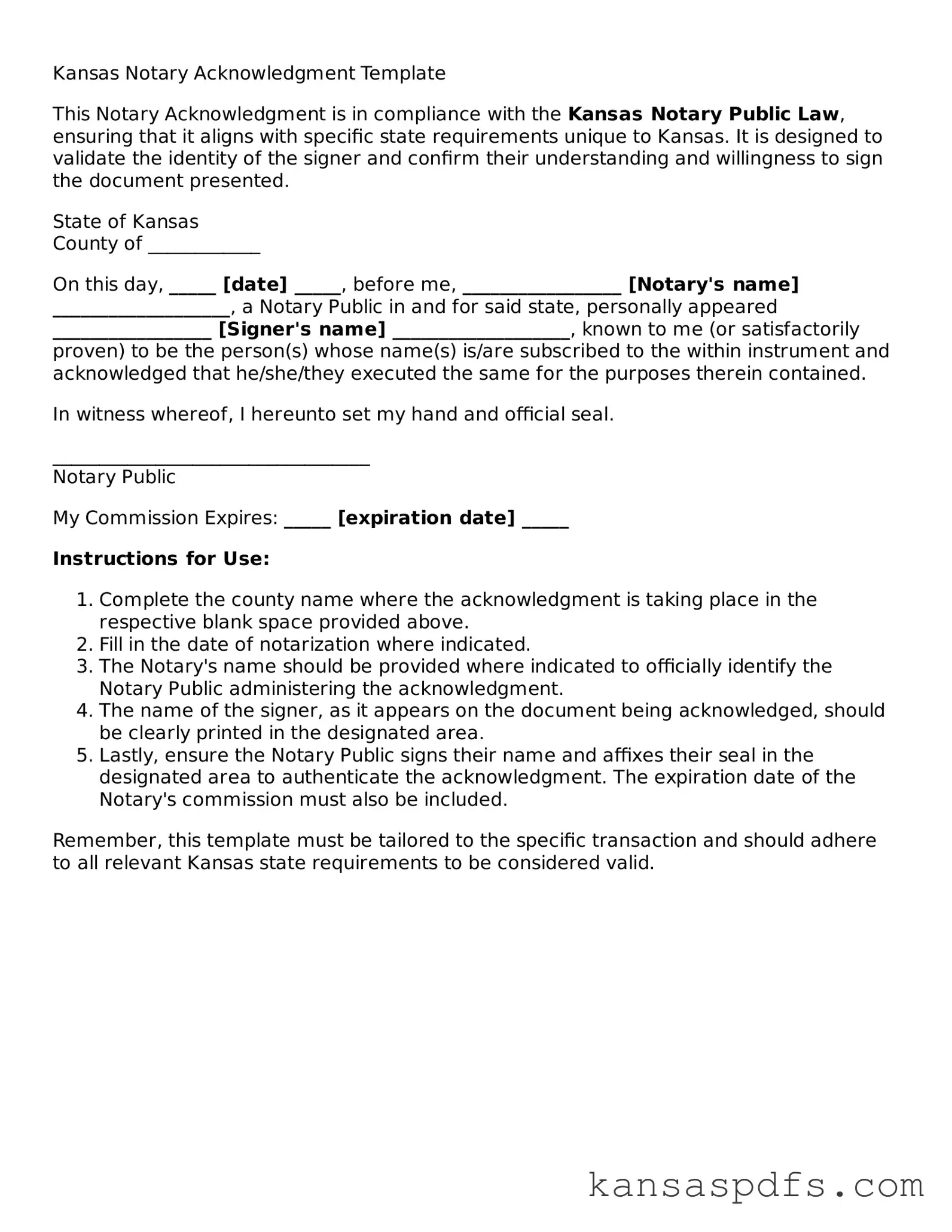Blank Kansas Notary Acknowledgement Document
The Kansas Notary Acknowledgement form is a document used to officially recognize the signature of a person on a legal document within the state of Kansas. By using this form, the signer's identity is verified by a notary public, ensuring that the signature is both valid and willingly given. For those needing to complete such formalities, clicking the button below will guide you through the process of filling out the form.
Get My Form Now

Blank Kansas Notary Acknowledgement Document
Get My Form Now

Get My Form Now
or
Free PDF
Finish this form without wasting time
Finish your Notary Acknowledgement online with quick edits and instant download.